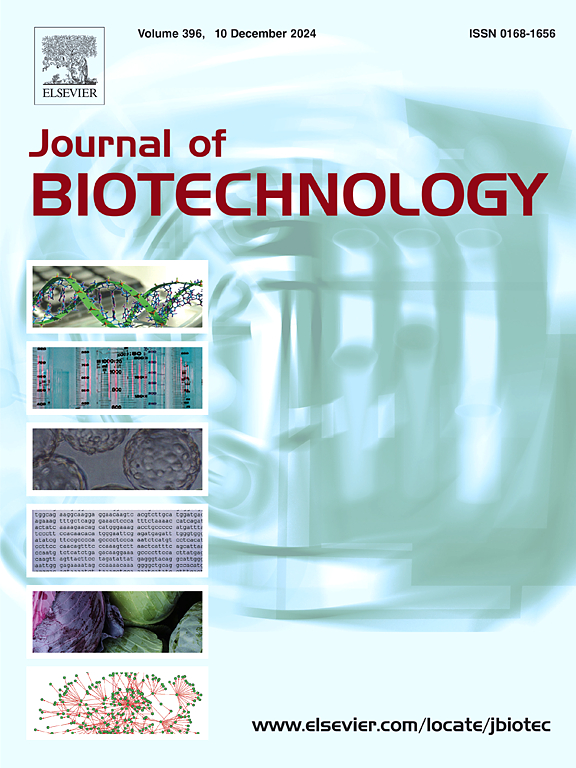Perspectives on the use of the CRISPR system in plants to improve recombinant therapeutic protein production
IF 3.9
2区 生物学
Q2 BIOTECHNOLOGY & APPLIED MICROBIOLOGY
引用次数: 0
Abstract
The plant-based system is a promising platform for producing biotherapeutics due to its scalability, cost-effectiveness, and lower risk of contamination by human pathogens. However, several challenges remain, including optimizing yield, stability, functionality, and the immunogenic properties of recombinant proteins. In this context, this review explores the application of CRISPR (Clustered Regularly Interspaced Short Palindromic Repeats) technology to improve the production of recombinant therapeutic proteins in plants. Traditional tools and strategies for plant-based recombinant protein production are discussed, highlighting their limitations and the potential of CRISPR to overcome these boundaries. It delves into the components of the CRISPR-Cas system and its application in optimizing therapeutic protein function and yield. Major strategies include modifying glycosylation patterns to humanize plant-produced proteins, metabolic pathway engineering to increase protein accumulation, and the precise integration of transgenes into specific genomic loci to enhance expression stability and productivity. These advancements demonstrate how CRISPR system can overcome bottlenecks in plant molecular farming and enable the production of high-quality therapeutic proteins. Lastly, future trends and perspectives are examined, emphasizing ongoing innovations and challenges in the field. The review underscores the potential of CRISPR to reshape plant biotechnology and support the growing demand for recombinant therapeutics, offering new avenues for sustainable and efficient protein production systems.
Key message
CRISPR technology has the potential to improve plant-based therapeutic protein production by optimizing yield, stability, and humanization, overcoming bottlenecks, and enabling sustainable, efficient systems for recombinant biotherapeutics.
利用CRISPR系统在植物中提高重组治疗性蛋白生产的展望
基于植物的系统由于其可扩展性,成本效益和较低的人类病原体污染风险而成为生产生物治疗药物的有前途的平台。然而,仍存在一些挑战,包括优化重组蛋白的产量、稳定性、功能和免疫原性。在此背景下,本文探讨了CRISPR (Clustered Regularly Interspaced Short Palindromic Repeats)技术在提高植物重组治疗性蛋白生产中的应用。讨论了基于植物的重组蛋白生产的传统工具和策略,强调了它们的局限性和CRISPR克服这些界限的潜力。它深入研究了CRISPR-Cas系统的组成部分及其在优化治疗蛋白功能和产量方面的应用。主要的策略包括修改糖基化模式来使植物产生的蛋白质人性化,代谢途径工程增加蛋白质积累,以及将转基因精确整合到特定的基因组位点以提高表达稳定性和生产力。这些进展证明了CRISPR系统如何克服植物分子农业的瓶颈,并使高质量治疗蛋白的生产成为可能。最后,研究了未来的趋势和前景,强调了该领域正在进行的创新和挑战。这篇综述强调了CRISPR重塑植物生物技术和支持对重组疗法日益增长的需求的潜力,为可持续和高效的蛋白质生产系统提供了新的途径。通过优化产量、稳定性和人性化,克服瓶颈,并为重组生物疗法提供可持续、高效的系统,crispr技术有可能改善基于植物的治疗性蛋白生产。
本文章由计算机程序翻译,如有差异,请以英文原文为准。
求助全文
约1分钟内获得全文
求助全文
来源期刊

Journal of biotechnology
工程技术-生物工程与应用微生物
CiteScore
8.90
自引率
2.40%
发文量
190
审稿时长
45 days
期刊介绍:
The Journal of Biotechnology has an open access mirror journal, the Journal of Biotechnology: X, sharing the same aims and scope, editorial team, submission system and rigorous peer review.
The Journal provides a medium for the rapid publication of both full-length articles and short communications on novel and innovative aspects of biotechnology. The Journal will accept papers ranging from genetic or molecular biological positions to those covering biochemical, chemical or bioprocess engineering aspects as well as computer application of new software concepts, provided that in each case the material is directly relevant to biotechnological systems. Papers presenting information of a multidisciplinary nature that would not be suitable for publication in a journal devoted to a single discipline, are particularly welcome.
 求助内容:
求助内容: 应助结果提醒方式:
应助结果提醒方式:


